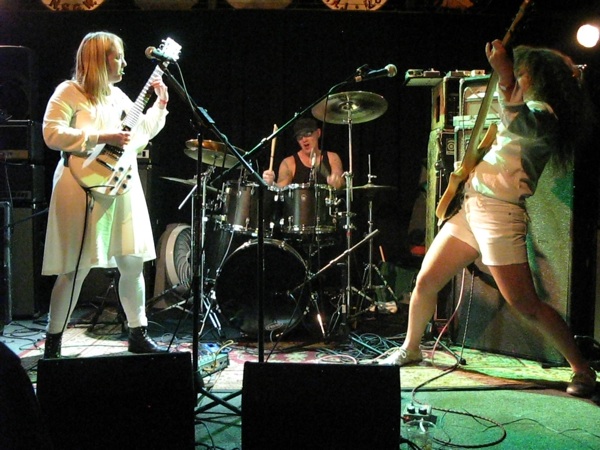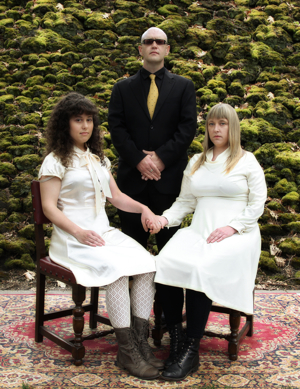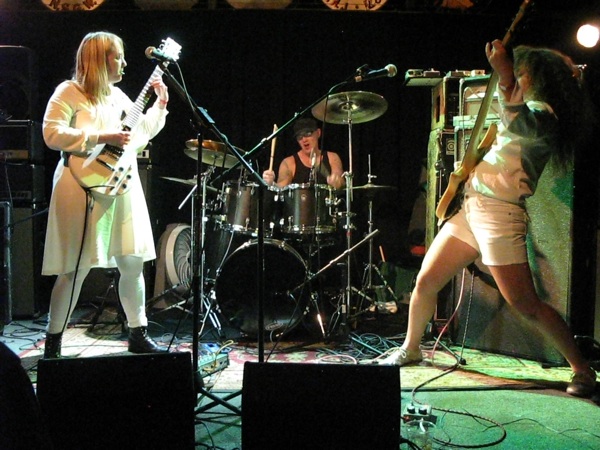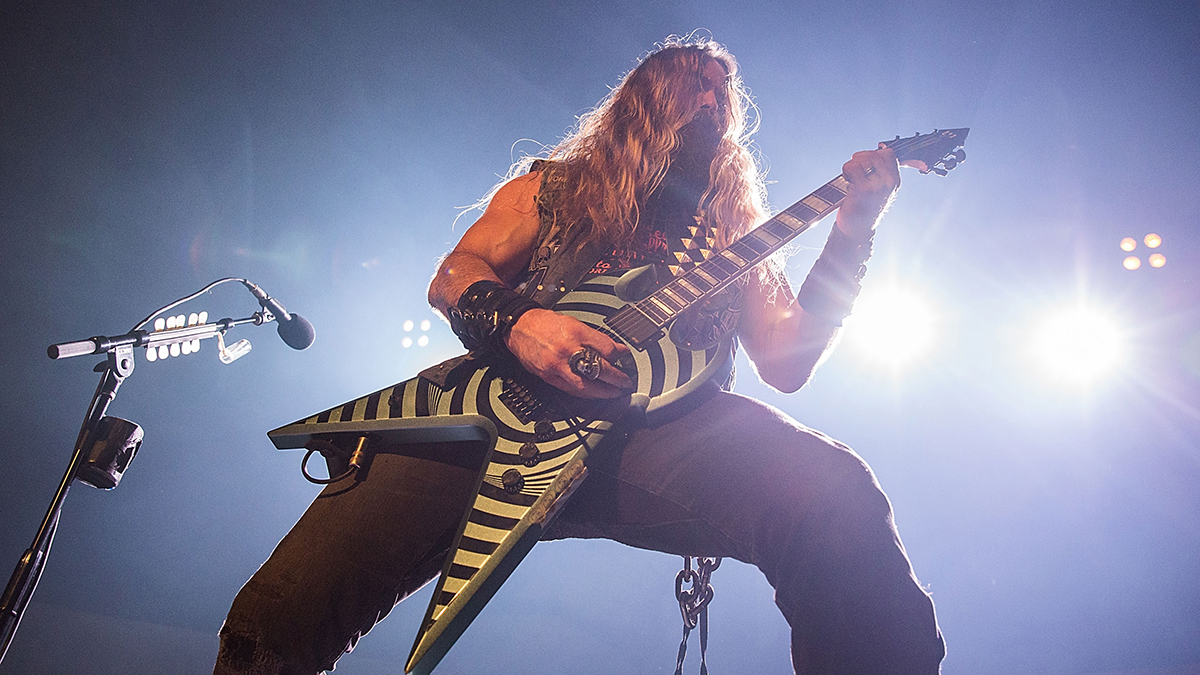Interview: Eight Bells Frontwoman Melynda Jackson Discusses Her Writing Process, Fuzz Pedals and More
All the latest guitar news, interviews, lessons, reviews, deals and more, direct to your inbox!
You are now subscribed
Your newsletter sign-up was successful

Portland-based musician Melynda Jackson has been a part of the heavy rock realm for a while now. Her previous band, SubArachnoid Space, released 10 studio albums over the past 15 years before disbanding in 2011.
Jackson has started a new band, Eight Bells, named after the final studio album by SubArachnoid Space. This experimental heavy rock trio consists of Jackson of guitar and vocals, Chris Van Huffel and bassist/vocalist Haley Westeiner. They released their debut album, The Captain's Daughter, last month.
I recently spoke to Jackson about all things Eight Bells. Part one of my interview is more of an introduction to the band, and you can read it here.
The second part of the interview deals with her writing process and gear. Check it out below, along with a song from the debut album, and visit the band at their official website.
GUITAR WORLD: These songs feature minimalistic vocals. What aspect of it fits into the music? Why isn't the music just instrumental?
I'm learning to sing. I've always wanted to. Part of that is encouragement from Haley. She has a choir background, so she knows a bit about how to sing. Also, I used to loop a lot of different melodies on my guitar, and it always ended up not working very well in terms of having those things heard [laughs]. Once you loop enough things on a looping device, it's all kind of like mush.
So I thought, "Why not try to do it with my mouth, because I hear multiple guitar parts but I can't play them all at the same time?" That's kind of why I do the vocals. I like to do it with a contact mic and a bunch of effects, but I'm using a microphone as well to sing with Haley, specially on the new stuff we're writing now. There's some wailing and some weird sounds on this album through my vocals that just come from a contact mic going through a line of effects. And the Haley sings the part on "Fate And Technology," which I sing with her when we play live.
All the latest guitar news, interviews, lessons, reviews, deals and more, direct to your inbox!
How do you compose? Is it a jam between the three of you or more of an individual effort by each member?
Usually I'll show up with a riff and then we'll jam it for a bit. A lot of times the next parts just sort of come. And then other times Haley will go home and think about it and then come up with something. In the next practice she'll have a part either to go with my riff or as the next part. There is no real concrete method. They happen in different ways. It's really hard to explain. We just kind of play what the song wants. That's what it feels like sometimes.
I think there's something about a three-piece where all members are able to express themselves. I don't find that in four- or five-piece bands because usually at least one guy is under-used. Three-piece bands are most expressive in terms of talent. Would you agree?
I've never been in a three-piece until now, but I have to say that I like it a lot [laughs]. There's plenty of room for everybody, nobody really steps on anybody else because there's no two of the same instruments. I think having a second guitar can be awesome if you're really wanting to orchestrate the parts together and what not, but even in SAS, one or the other guitarist always felt like they were being walked on or stepped on. It's nice not to have that anymore. And also, this is the reason three-piece bands have been called power trios forever. I think about it as a triangle, and how the base of it is really strong.
You said you use a lot of effects to create an expression and give a psychedelic edge to the music. You already spoke about the vocal stuff, but for the instruments, what kind of effects are you using?
It is pretty basic, really. I just use a lot of delay. I use three different delay pedals that do slightly different things. I like delay a lot because I think it helps me to come up with interesting rhythms, I suppose. I use a lot of fuzz. I use distortion. On occasion, I use wah-wah, but I'm using it less these days.
Do you experiment with that stuff, as in adding or removing things just to see how it changes the music?
You know, I kind of have the basic setup that I use. I've actually been using less delay, and there are parts that have no delay, which is pretty good. I'm not really interested in one-trick pony type effects. I can put a big flanger or phaser on something but it's not like you can use that more than once in a show. It gets pretty tedious. So I use my effects to give me my personal sound, and to give me some options. I like to use a couple of different kinds of distortion because it's useful if you need to pop out of a massive sound that you've made. You can turn off or no a differently EQ'ed distortion to play a lead over something you may have looped, etc. So, at the moment there's nothing I need to add except for a better fuzz pedal which seems to be an endless quest [laughs].
What kind of fuzz pedal are you using at the moment?
I'm using a Roger Mayer Spitfire pedal, supposedly made by the guy who made Hendrix's pedals. But it's a reissue. I'd really like the Colorsound fuzz, but money is kind of a big thing. I'm also getting pretty interested in EarthQuaker Devices. They're well-priced and decent pedals, and I want to try some of those out to see if I can get some better distorted sounds.
Andrew Bansal is a writer who has been running his own website, Metal Assault, since early 2010, and has been prolific in covering the hard rock and heavy metal scene by posting interviews, news, reviews and pictures on his website — with the help of a small group of people. Up till February 2012 he was based in Los Angeles. After that, he had to move to India, but is still carrying on his heavy metal endeavors with the same intensity.



